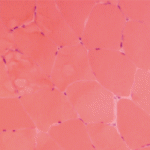NEW YORK (Reuters Health)—The risk of malignancy in patients with systemic necrotizing vasculitis varies according to the treatment received, according to an analysis of five randomized controlled trials.
Previous studies reported an increased risk of malignancy in patients with systemic necrotizing vasculitis, and a more recent study from the European Vasculitis Study Group, based on data through 2007, found a smaller increased cancer risk magnitude compared with earlier studies.
For the current study, Dr. Antoine Lafarge from Cochin Hospital and National Referral Center for Rare Systemic Autoimmune Diseases, Paris, and colleagues in the French Vasculitis Study Group used data from 733 patients with systemic necrotizing vasculitis enrolled between 1993 and 2012 in one of five randomized controlled trials to evaluate the malignant burden of systemic necrotizing vasculitis.
During 4485.9 person-years of observation, 5.3% of patients developed malignancies (a rate of 869.5 cases per 100,000 person-years), including 4.6% with solid cancers (757.9 cases per 100,000 person-years) and 0.7% with hematological malignancies (111.5 per 100,000 person-years).
The calculated standardized incidence ratios for all cancers did not differ significantly between these patients and the general population included in the French National registry, according to the online report in Annals of the Rheumatic Diseases.1
In multivariate analyses, age at least 65 and use of azathioprine and methotrexate as maintenance were independently associated with the increased occurrence of malignancy.
When it occurred, malignancy was associated with poorer overall survival, and the cause of death was directly related to the malignancy or its treatment in all 19 patients with cancer who died.
“A key finding of our study was the lower incidence of malignancy than previously reported in patients with [systemic necrotizing vasculitis], which was now comparable to that of the general population,” the authors note. “This decreased risk of malignancy may be driven by the more extensive use of cyclophosphamide-sparing strategies.”
“Taken together,” they conclude, “these findings suggest that malignancy should no longer be considered as a predominant feature driving the therapeutic strategy.”
Dr. Lafarge and co-author Dr. Benjamin Terrier did not respond to a request for comments.
Reference
- Lafarge A, Joseph A, Pagnoux C, et al. Risk of malignancy in patients treated for systemic necrotising vasculitis. Ann Rheum Dis. 2019 Nov 25. pii: annrheumdis-2019-216452. [Epub ahead of print]


